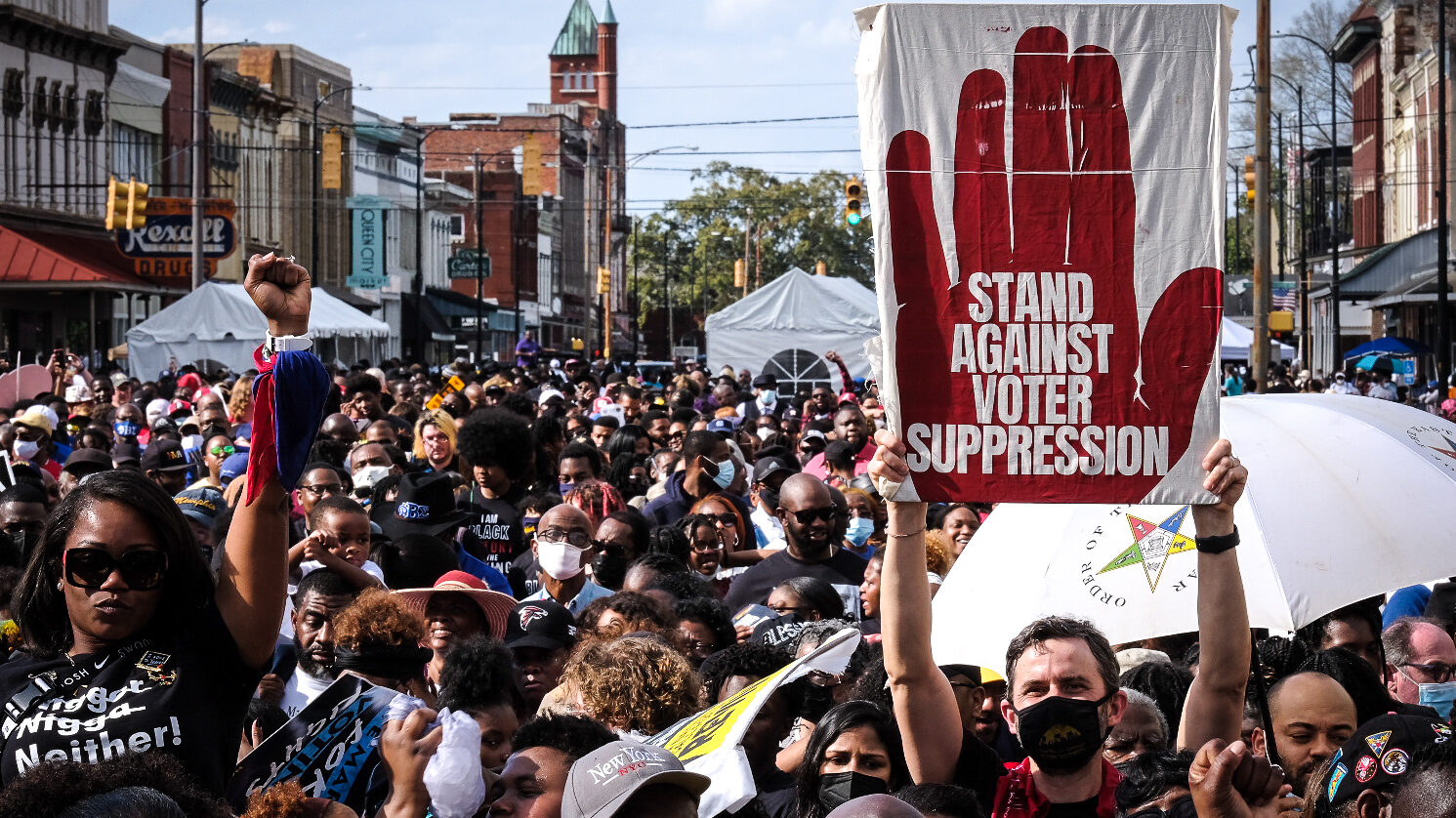Democracy + Authoritarianism

Definition
Democracy, in its broadest sense, includes the ability to meaningfully participate in the decisions that impact our lives. From our access to the ballot to the resources at our local schools to the quality of our health care and national policy priorities, a thriving, multiracial and inclusive democracy reflects the consent and engagement of its people. It allows space for disagreement, discussion and decision-making that reflects shared values.
Why this matters
Democracy today is under assault, facing a rolling coup that has been steadily constraining the space for democratic engagement and political participation. Over the past decade and more, voter suppression, gerrymandering and other tactics have made it harder for specific populations to engage in elections, in particular Black people, Native/Indigenous people, elderly, college-age voters, rural voters and new citizens. One link between these different groups is that they are disproportionately poor and low-income people. In fact, electoral participation rates for poor and low-income voters are, on average, 20 percentage points lower than higher-income voters.
Historically, when the political process has been made more inclusive of poor and dispossessed people, our society has become more equitable and just, moving resources towards community needs that have long been unmet. This is not a question of favoring the political “right” or “left,” but prioritizing what is right or wrong in our nation’s politics.
Today, poor and low-income voters account for one-third of the electorate, representing people of every race, ethnicity, gender and sexual orientation, in every region of the country. They are a mighty force whose needs are not being met in our current political and economic systems. If they were organized to take action together, in elections and other political arenas, they could advance a more equitable and just political agenda that centers their needs and benefits us all.
Our Response
- Leadership of the Poor: The space for political participation is being increasingly narrowed by authoritarian forces, which constrains the effectiveness of our democracy. A core element of defending democracy is connecting the diverse struggles that are being waged by poor and low-income communities to their exercise of political power. We prioritize the engagement of poor and low-income voters as the basis of a new electorate that can revive our failing democracy.
- Change the Narrative: It is widely believed that poor people do not care about elections or politics. This is wrong and misleading. More accurately, politics do not prioritize the issues that are of greatest concern to the poor. If we center the issues that poor people care most about, namely health and economic well-being, we can organize this massive segment of voters to engage in the political arena.
Tips for Engagement
- Each One, Teach One: Share the information from these resources on social media, in your community or congregations. Organize a study session in your community or congregation using articles, videos and other resources from this resource hub.
- The Struggle is Our School: Invite a leader from the Kairos Center Network to speak at your church or community organization and learn from the first hand experience of leaders working to build a movement to end poverty and the interlocking injustices.
- Learn as You Lead: Join the state-based work of the Poor People’s Campaign wherever you live.
- Follow the Kairos Center on social media to access our latest content.